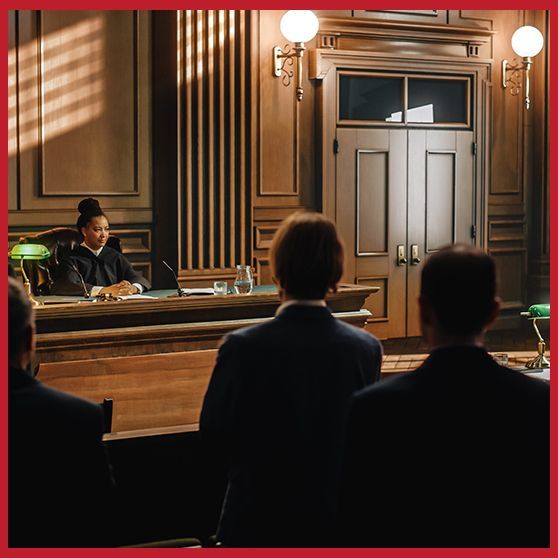Lawyer's Guide to Habeas Corpus: Protecting Your Freedom and Rights
Lawyer's Guide to Habeas Corpus: Protecting Your Freedom and Rights
Blog Article
Recognizing the Role of a Post-Conviction Lawyer in Seeking Justice After a Criminal Conviction
In the complex landscape of post-conviction legal process, the duty of a post-conviction legal representative is crucial in browsing the path to justice after a criminal sentence. Past the boundaries of a test, these lawyers take part in a complex technique aimed at uncovering brand-new proof, tough legal mistakes, and advocating for their customers' legal rights. The complexities of post-conviction work need a blend of lawful acumen, investigatory skills, and strategic assuming to decipher the complexities of an instance and pursue methods that may have been neglected or underexplored. As the search of justice prolongs beyond the boundaries of initial process, the function of a post-conviction legal representative arises as a beacon of wish for those seeking to rectify oppressions and reclaim their civil liberties within the legal system.
Post-Conviction Lawyer's Investigative Job
Post-conviction attorneys engage in thorough investigatory work to reveal brand-new evidence, step-by-step mistakes, or misbehavior that can possibly result in overturning a sentence. This investigative stage is critical in the post-conviction procedure as it aims to recognize any type of overlooked information or legal bad moves that might have affected the outcome of the first trial. Post-conviction attorneys dig into case documents, witness testimonies, and lawful documentation with a fine-tooth comb, searching for any disparities or irregularities that might be premises for charm.
With detailed investigation, post-conviction legal representatives aim to shed light on prospective oppressions that may have occurred during the original test. By scrutinizing every aspect of the lawful proceedings, post-conviction attorneys work relentlessly to uncover any type of factors that may have influenced the judgment.
Crafting Appeals and Petitions
In the pursuit of justice after a conviction, experienced legal representatives diligently craft allures and applications to existing compelling debates for the reconsideration of lawful choices. Crafting charms and petitions calls for a deep understanding of the lawful system, focus to information, and strategic reasoning. Post-conviction lawyers evaluate test documents, identify possible errors or offenses of rights, and develop lawful disagreements to challenge the conviction or sentence.
When crafting an allure, attorneys focus on highlighting lawful errors that might have influenced the result of the situation. They look into instance law, laws, and lawful precedents to support their arguments. Petitions, on the other hand, may include providing new proof that was not offered during the trial or demonstrating modifications in the law that necessitate a review of the sentence.
Furthermore, post-conviction attorneys must stick to stringent step-by-step policies and target dates when submitting allures and petitions. They have to offer their arguments clearly and persuasively to encourage the court to provide alleviation to their clients. Through careful crafting of charms and applications, post-conviction legal representatives aim to protect justice for individuals that have actually been wrongfully founded guilty or unfairly punished.

Seeking Post-Conviction Alleviation
Seeking relief after a sentence requires a strategic and thorough technique by knowledgeable attorneys. Post-conviction relief incorporates a variety of lawful devices made to test the validity of a sentence or sentence (wyoming federal habeas corpus lawyers). These avenues include submitting activities for a brand-new test, pursuing appeals, seeking writs of habeas corpus, and presenting freshly uncovered evidence. Post-conviction legal representatives play a vital role in navigating these intricate procedures, making sure that all legal alternatives are explored to rectify injustices that may have occurred throughout the test or sentencing phase.
One usual type of post-conviction relief is filing a request for post-conviction relief, normally based on claims of ineffective support of advice, prosecutorial transgression, newly discovered evidence, or constitutional offenses. These petitions require a thorough evaluation of the trial record, legal research, and convincing advocacy to persuade the court to provide relief. Experienced post-conviction legal representatives possess the skills and understanding needed to recognize viable legal insurance claims, carry out investigations, and existing engaging arguments to safeguard alleviation for their customers. By carefully pursuing post-conviction relief, these attorneys make every effort to fix miscarriages of justice and promote the principles of justness and due process in the criminal justice system (Lawyer).
Using Forensic Evidence
When challenging a conviction or sentence, the tactical use of forensic proof can be an effective device in post-conviction lawful process. Forensic evidence includes a variety of clinical strategies used to examine crimes and establish realities in court. Post-conviction legal representatives can leverage forensic evidence to challenge the legitimacy of sentences by presenting brand-new clinical searchings for that were not offered throughout the initial trial.

Involving in Sentence Adjustments
Post-conviction lawyers may discover the opportunity of sentence modifications as a lawful opportunity to address out of proportion or unjust sentences bied far in criminal instances. Sentence modifications involve looking for adjustments to the regards to an offender's sentence after a sentence has actually taken place. These modifications can consist of decreasing the size of a sentence, changing the kind of punishment enforced, or exploring different sentencing choices.
Post-conviction attorneys can pursue sentence modifications through various legal devices, such as filing movements for sentence decrease, appealing for compassionate release, or negotiating appeal deals for decreased sentences. They have to carefully evaluate the situations of the case, examine the lawful helpful site premises for looking for an alteration, and present engaging disagreements to the court sustaining the need for a modified sentence.
Involving in sentence adjustments calls for a detailed understanding of criminal regulation, sentencing standards, and the details treatments included in seeking post-conviction relief. Post-conviction lawyers play a crucial role in supporting for reasonable and just outcomes by difficult sentences that are unduly severe or do not align with the principles of justice.
Final Thought
Finally, the role of a post-conviction attorney is vital in looking for justice after a criminal conviction. Via investigative work, crafting allures and petitions, going after post-conviction alleviation, making use of forensic proof, and taking part in sentence adjustments, these lawful professionals play an essential function in supporting for their customers and making sure that their rights are supported within the criminal justice system. Their commitment and expertise are crucial in navigating the intricacies of post-conviction procedures and accomplishing a fair outcome for individuals facing criminal sentences.
Report this page